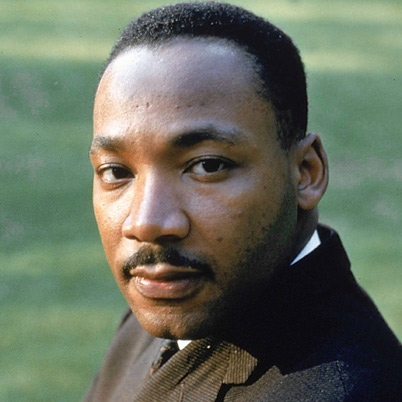The views expressed in our content reflect individual perspectives and do not represent the authoritative views of the Baha'i Faith.
 If the secret to success means we honor process above all, if we focus on the means rather than the end, if working for human unity brings us true happiness – doesn’t all that sound reasonable enough? As we all project our own thoughts and preferences on what it means to strive for this all-important “unity,” let’s examine the premise. Before we nod in agreement and wave this off as just garden-variety common sense or a hopeless pipe-dream, let’s run the idea through a few case studies.
If the secret to success means we honor process above all, if we focus on the means rather than the end, if working for human unity brings us true happiness – doesn’t all that sound reasonable enough? As we all project our own thoughts and preferences on what it means to strive for this all-important “unity,” let’s examine the premise. Before we nod in agreement and wave this off as just garden-variety common sense or a hopeless pipe-dream, let’s run the idea through a few case studies.
We can begin with the most blatant example of ends used to justify means: war. In war we seek the destruction of an enemy for some supposed greater good. But inevitably a problem arises, and Gandhi put his finger on it when he famously said, “I object to violence because when it appears to do good, the good is only temporary; the evil it does is permanent.” Understanding both our human myopia and amnesia is key to getting this. In the short run, war can appear to fix all sorts of things. But in the long run it inevitably either creates more problems than solves, or delays the solving of the real problem. At the other end, we tend quickly to forget the horrors of war, while we glorify its trappings in parades, ceremonies, air shows, and reenactments. The Baha’i Faith advocates and works for world peace, but is not a purely pacifist religion; the Founders do prescribe military action in the interest of collective security. But the world political unity under which such action would be desirable has yet to happen, so the Faith’s teachings do not support waging war under any current scenario.
On the societal level, the principle of collective security enunciated by Baha’u’llah and elaborated by Shoghi Effendi does not presuppose the abolition of the use of force, but prescribes
“a system in which Force is made the servant of Justice”,
and which provides for the existence of an international peace-keeping force that
“will safeguard the organic unity of the whole commonwealth.” – The Kitab-i-Aqdas, p. 241.
But war only represents the most extreme example. Politics as currently practiced is war minus the physical violence (most of the time, at least). So while vastly preferable to war, it is hardly the best we can do. Politics often offers a vivid example of the end-justifies-the-means mindset. Again and again we see the pattern: a young, idealistic person enters the world of political involvement to “make a difference,” a praiseworthy and virtuous motive. She ran for office in her high school and was elected. In college she got involved by volunteering in a presidential campaign, and now that she’s out of law school, has a fire in her belly to run for office and right wrongs she sees all around her.
To the immense pride of her parents and former teachers, she gets elected. Now, at last, she is in a position to start making those changes for which her soul has longed. But first, she quickly comes to the realization that she cannot change the world if she doesn’t stay in office. So if Day One was a celebration of her first election, Day Two begins her next campaign. Unless she possesses superhuman virtues, the pressures of office and frustration with process lead her inexorably toward cutting corners. To get reelected, she must fight, and fighting involves bragging about her own accomplishments and belittling the views and accomplishments of her competitors — hardly spiritually uplifting activity. In some cases, slowly, almost imperceptibly, corruption follows.
Multinational corporate practice — or any practice that subjugates one people in the world to another — falls under the heading of marginalization, which again violates the spirit of unity. Lavish spending on luxury items, when millions go without essentials, shows in yet another way how far we are from unity.
So right out of the gate we have three topics — war, politics, and greed — that dominate our news cycles and our lives. All, as practiced today, rigorously work against the idea of unity. We know we need increased unity, we understand that it benefits everyone, we get that it increases the peace and brings about harmony – but where do we find it?
Read the next article in The Universal Secret to Success series: Finding Unity in the World – coming soon
Read the previous article in The Universal Secret to Success series: The Universal Secret to Success


















Comments
Sign in or create an account
Continue with Googleor